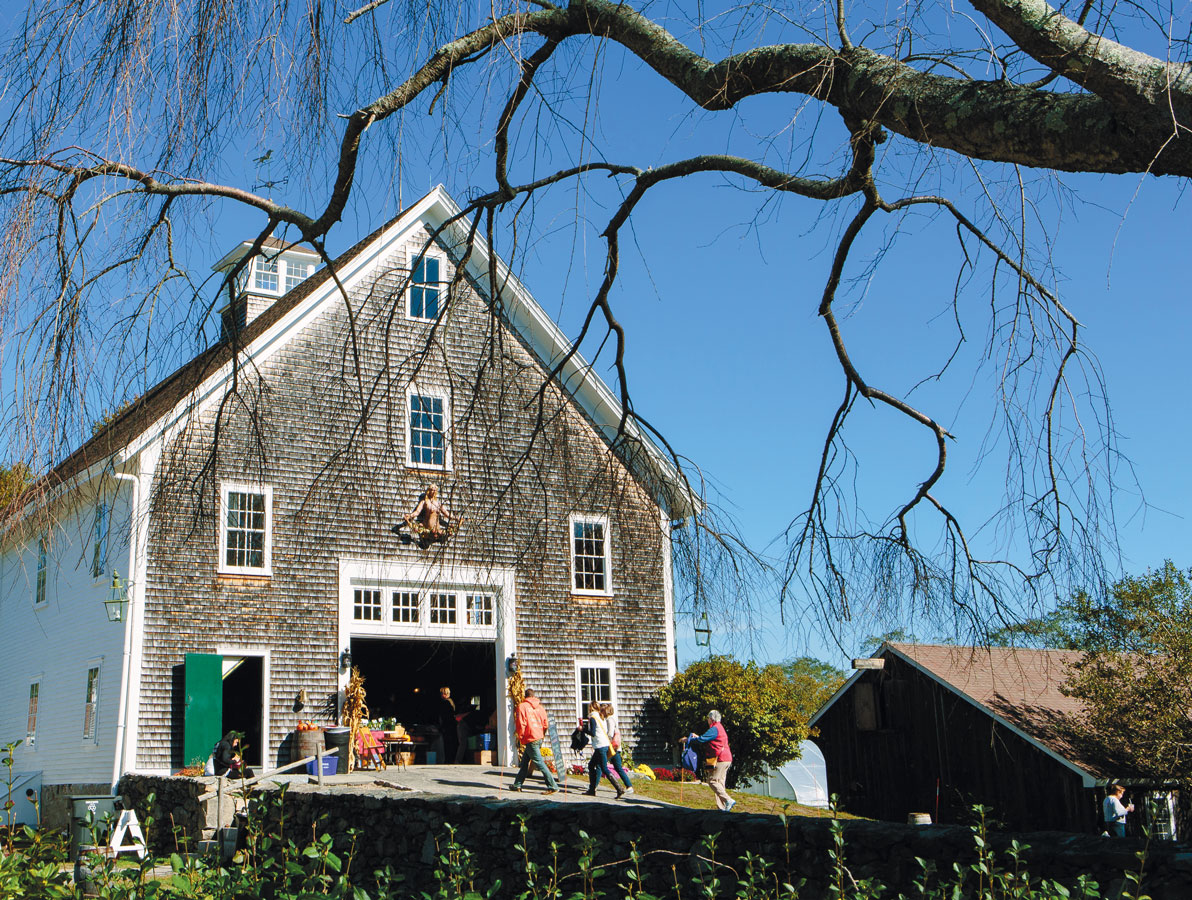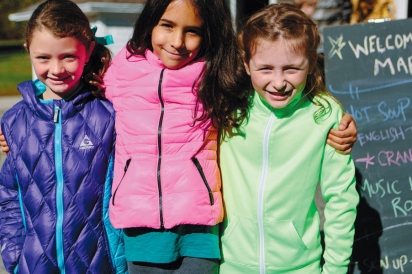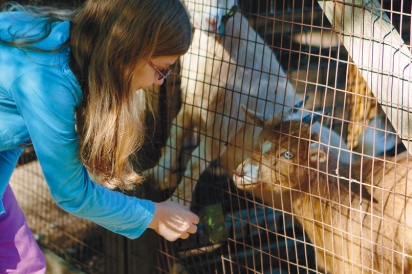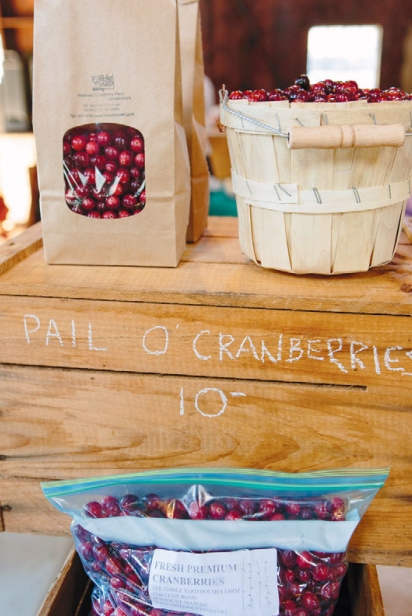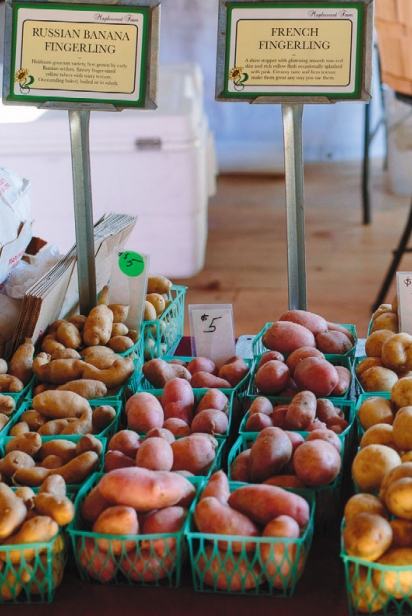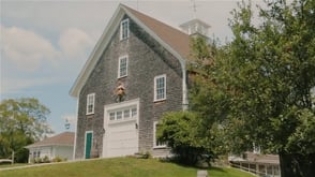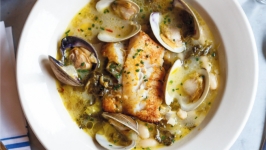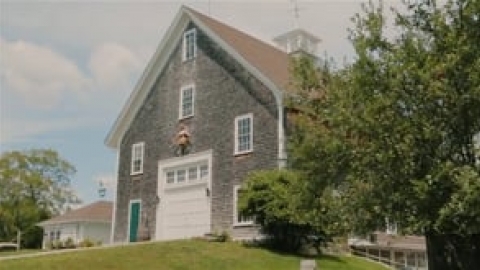Rich History, Ripe Future at Mount Hope Farm
Mount Hope Farm is a national historical property overlooking Mount Hope Bay in Bristol. Once a summer hunting and camping ground for the Wampanoag Indians, the 127 acres and six historic buildings that make up the farm passed through the hands of several owners before landing in the care of the Mount Hope Trust in 1999.
Since then, the nonprofit organization has lovingly cared for the rambling fields, centuries-old buildings, nature trails, coves and farmland with the mission to preserve the property and make it accessible for all to enjoy. Today it takes a board of directors, a small but dedicated staff of six and one dynamic leader, Executive Director Jennifer Bristol, to keep each of the several arms of the farm’s operations expanding and running smoothly, for present and future.
THEN
Between 1676 and 1917 Mount Hope Farm was cared for by several prominent New Englanders, each adding their own architectural improvements and managing the farmland in different ways, from extensive vegetable and livestock agriculture to true “gentleman” farming. Mount Hope Farm has belonged to (among a few others): King Phillip, Sachem of the Wampanoag Tribe; Nathaniel Byfield; Isaac Royal, one of the largest slave holders in New England; the State of Rhode Island; and U.S. Senator William Bradford before being sold to Rudolf Haffenreffer in 1917. The Haffenreffer family cared for the property with great enthusiasm for eight decades before the Mount Hope Trust took ownership.
At the time he took over the farm, Rudolph Haffenreffer was a major contributor to Rhode Island industry. In addition to owning the Herreshoff Manufacturing Co., he was a beer brewing giant, owning several breweries in the area including Narragansett Brewery. From the beginning of their stewardship, the Haffenreffers put significant work into the property. They completed a major restoration and built the stunning Cove Cabin on the shores of the Bay. The Haffenreffers also raised cattle during the early years of their ownership.
Eventually the farm was inherited by Rudolf Haffenreffer II, who is remembered for his passion for Native American culture. With a rich history and two protected sites on the property, including King Phillip’s Seat, Mount Hope Farm was the ideal place for Rudolf II to pursue this interest. Eventually his large collection of wooden figures and other indigenous artifacts, became the Haffenreffer Museum of Anthropology, when in 1955, 220 acres of Mount Hope Farm were donated to Brown University.
When the Haffenreffer family was no longer able to care for the property, it was sold to the Mount Hope Trust.
AND NOW
Today Mount Hope Farm remains a magnificent piece of property, abundant with history that requires continual attention and care to keep operating. Under the direction of the board, Jennifer Bristol is digging deep to continue to run, and set new programming in motion that will carry on the farm’s legacy. She is faced with the particular challenge of simultaneous upkeep of a historical site and generating revenue. The recipe that seems to be working is a multi-faceted structure of programs and revenue sources, all geared to a commitment to the future of the farm and the preservation of its history.
With each project that she considers for the farm, Jennifer asks herself these questions: Does it bring in revenue? Does it help the wider community? Does it have educational value? If the answer is yes to all three, she moves forward with greater confidence that the outcome will be a positive one.
CELEBRATIONS
Mount Hope Farm sets an iconic backdrop to a New England wedding or party as friends and family gather in the barn and gardens, or at the Cove Cabin, drinking in the exquisite scenery. While requiring an enormous output of energy, these events account for 20%–30% of the budget for farm upkeep. Weddings and events are a significant part of what makes Mount Hope Farm operate financially but Jennifer also sees them as a way of generating future support for the Trust. She holds strong that “once you fall in love with the place (which you probably will) you will do what you can to keep it safe for the future.”
ACCOMMODATIONS
The Bed & Breakfast at Mount Hope Farm consists of three buildings: the Governor Bradford House and The North and South Pasture Guest Houses. There are 12 rooms total, each with its own bathroom. Breakfast is served each morning using the farm’s eggs and produce from the gardens. Rooms are often filled with wedding parties, couples taking a weekend retreat or families returning to a place that has holds a special meaning for them. Major attention goes into each room and each guest, even though the B&B is a break-even venture for the Trust. Some may ask if this is worth it but Jennifer gives a resounding, “Yes!” as it again allows people to build a relationship with the farm for future support—not to mention the old buildings benefit from the use of their plumbing, electricity and overall mechanics.
FARMERS’ MARKET
The farmers’ market at Mount Hope Farm runs every Saturday morning throughout the entire year. In the summer months vendors set up outside and during the winter months, inside the barn, which is among the most delightful and coziest places to shop in the state. No matter the time of year, everyone agrees that there is something special about the Mount Hope Farmers’ Market.
Market Manager Cassie Tharinger has done an incredible job bringing together a mix of growers, producers, artists and musicians who genuinely support each other and create a warm “we’re all in this together” atmosphere. The feeling spills over to the customers, who come weekly in droves not just to shop but also explore the entire farm. From produce, to fish, to coffee, to meat, to baked goods, to olive oil, to kids’ activities, there really is a bit of everything you could want from a farmers’ market outing.
“I’ve seen the farmers’ market become a hub for social interaction, as well a nexus point for people to engage with food and appreciate the physical landscape,” says Cassie. “To me that’s local agriculture at its best!”
AGRICULTURE
The percentage of the farm that is actually in agriculture today is relatively small. It includes six acres of hay fields spread out across the landscape, heritage breed sheep, hens and bunnies. Perhaps most popular animals, though, are the Nigerian dwarf goats, which are raised for youth education programs. The plan is to produce cheese in the future.
The farm’s greenhouse and one small garden plot are leased by farmer Leigh Ann Freitas of Indie Growers. Freitas supplies many local and regional restaurants year-round with the produce and edible flowers. The board is considering the potential expansion of farming but only to what makes the most sense for the Trust in the long term.
To that end, this past spring, with help from several supporters, the farm installed an accessible-to-all garden that will serve as a demo garden and learning site for youth and adult programming. The farm is also in partnership with the James L. Maher Center in Newport, giving adults with disabilities onsite job training working in the garden.
FUTURE GENERATIONS
A major success for Mount Hope Farm in recent years has been the start of a 4-H youth program for kids. The farm’s animals play a major role as children take an active role in their care and management.
This past summer, Camp Wetu, a day camp for children, became an integral part of the youth education program. The camp ran for four (two-week) sessions and used the farm as a classroom.
In 2014 Brown University asked Mount Hope Farm to become the caretaker of the piece of property near the Cove Cabin that was originally donated to them by the Haffenreffer family, as well as the Native American sites that exist there. These additional 220 acres will play a large role in future programming and Native American education on the farm.
LOOKING AHEAD
Jennifer is inspired by the movement towards agricultural education and demonstration that the farm is taking. Each expanding project is hitting her three essential criteria and is a chance for Mount Hope Farm to meet its mission of preservation and accessibility.
“Year by year, as the programs develop, a new population will put down roots in this place while playing and learning in a natural, historical environment,” she says. “And as each visitor to Mount Hope Farm formulates their own heartfelt experience, the community of support grows.”
Mount Hope Farm
250 Metacom Ave., Bristol, RI 401.254.1745; MountHopeFarm.org Mount Hope Farm trails and open spaces are open from dawn until dusk most of the year for recreational activities.


